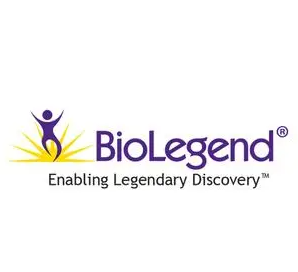Product Details
- Verified Reactivity
- Human
- Antibody Type
- Monoclonal
- Host Species
- Mouse
- Immunogen
- Recombinant Human VEGFR2-Fc Chimera
- Formulation
- Phosphate-buffered solution, pH 7.2, containing 0.09% sodium azide
- Preparation
- The antibody was purified by affinity chromatography and conjugated with Spark YG? 570 under optimal conditions.
- Concentration
- 0.5 mg/mL
- Storage & Handling
- The antibody solution should be stored undiluted between 2°C and 8°C, and protected from prolonged exposure to light. Do not freeze.
- Application
-
IHC-P - Quality tested
- Recommended Usage
Each lot of this antibody is quality control tested by formalin-fixed paraffin-embedded immunohistochemical staining. For immunohistochemistry, a concentration range of 5.0?- 10??g/mL is suggested. It is recommended that the reagent be titrated for optimal performance for each application.
* Spark YG? 570 has a maximum excitation of 555 nm and a maximum emission of 570 nm.- Excitation Laser
- Green Laser (532 nm)/Yellow-Green Laser (561 nm)
- RRID
- AB_2860956 (BioLegend Cat. No. 374005) AB_2860957 (BioLegend Cat. No. 374006)
Antigen Details
- Structure
- Type I transmembrane glycoprotein, type III tyrosine kinase receptor, CSF-1/PDGF receptor family
- Distribution
-
Endothelial cells, embryonic tissues
- Function
- VEGFR2 regulates angiogenesis as well as vascular development and permeability
- Interaction
- VEGF-A, SHC2, NPR1, NCK1
- Ligand/Receptor
- VEGF-A, VEGF-C, and VEGF-D splice isoforms
- Cell Type
- Endothelial cells
- Biology Area
- Angiogenesis, Cell Biology, Immunology
- Molecular Family
- CD Molecules, Cytokine/Chemokine Receptors
- Antigen References
-
1. DiSalvo J, et al. 1995. J. Biol. Chem. 270:7717.
2. McColl BK, et al. 2003. J. Exp. Med. 198:863.
3. Albuquerque RJ, et al. 2009. Nat. Med. 15:1023.
4. Guangqi E, et al. 2012. J. Biol. Chem. 287:3029.
5. Koch S, and Claesson-Welsh 2012. Cold Spring Harb Perspect Med 2:a006502.
6. Munaut C, et al. 2012. Plos One 7:e33475.
7. Wehland M, et al. 2013. Int. J. Mol. Sci. 14:9338. - Gene ID
- 3791 View all products for this Gene ID
- UniProt
- View information about CD309 on UniProt.org








